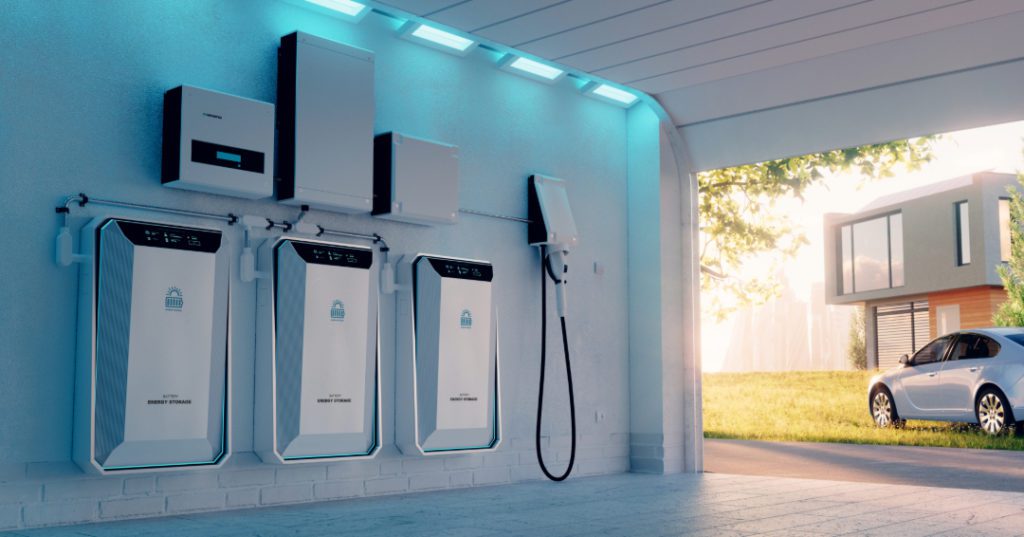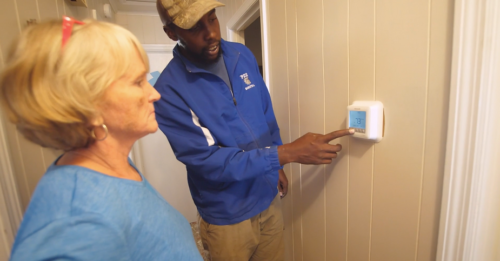Blog
PowerPair Program Approved by NC Utilities Commission
New residential solar and battery storage incentive program approved in January, takes effect in May. On January 11, the NC Utilities Commission approved a landmark pilot program called ‘PowerPair’ designed to lower the costs of new solar and battery storage systems for residential customers in Duke Energy Carolinas and Duke Energy Progress utility territories across…
Read MoreRiza Jenkins: Empowering an Equitable Clean Energy Transition
We recently had the chance to chat with Riza Jenkins, NCSEA’s newly appointed board chair and the first Black woman to hold this position on the board. As Principal at her company The Azir Group and Vice President of Asset Management at PurEnergy, Riza has a wealth of knowledge when it comes to business development…
Read MoreMore Than 80% of North Carolina Clean Energy Adopters Experience Significant Reductions in Energy Bills
With information on clean energy ownership coming from such a broad range of sources, it can be difficult to determine the actual economic benefits of purchasing a solar system, an electric vehicle (EV), or another clean energy technology for your home. However, there is increasing evidence indicating the value of clean energy, including data from…
Read MoreNCSEA Statement on Duke Energy’s Carbon Plan Supplemental Planning Analysis
RALEIGH, N.C. – On January 31, Duke Energy filed a Verified Amended Petition for Approval of 2023-2024 Carbon Plan and Integrated Resource Plans and Supplemental Planning Analysis in the Carbon Plan/Integrated Resource Plan docket to adjust for the company’s increased load forecast. The filing sets out Duke’s plans to add a variety of generation resources…
Read MoreNCSEA Statement on Changes to Non-Residential Solar Net Metering
RALEIGH, N.C. – In December, the North Carolina Utilities Commission issued an order in the Duke Energy Carolinas rate case, which approved the utility’s proposed changes to non-residential solar compensation. The changes to these solar rates will greatly affect the economics of solar investments by small businesses and local governments and closely resemble the changes approved…
Read MoreResponse to Duke Energy’s Proposed Combined Carbon Plan and Integrated Resources Plan (CPIRP)
Background on the Carbon Plan In 2021, leadership in the North Carolina General Assembly and the Governor reached a bipartisan agreement to establish the first carbon reduction mandates for a state in the Southeast. This agreement was enacted into law as House Bill 951: Energy Solutions for North Carolina (HB 951). It requires Duke Energy (Duke) to…
Read MoreClean Energy Contributes Billions to North Carolina’s Economy
Did you know that North Carolina experienced $1.2 billion in renewable energy investment in 2022, which is 41 times the $29.8 million of investment seen in 2007? Throughout the state, there is evidence of the clean energy transition everywhere you look. From the widespread growth of utility-scale solar, to the ongoing buildout of electric vehicle…
Read MoreNC Utilities Commission Approves Innovative, Inclusive Energy Efficiency Program
NCSEA celebrates the recent news that the N.C. Utilities Commission (NCUC) issued an order approving the statewide rollout of an innovative energy efficiency program that will help homes receive much-needed upgrades at low-to-no upfront costs and see monthly net savings on their utility bills. We commend the NCUC for its decision that we expect will…
Read MoreReflecting On Our Collective Achievements
After several months of planning, in July we announced that I was stepping down from the role of Executive Director here at the North Carolina Sustainable Energy Association (NCSEA). It has been an honor to work with the team at NCSEA, the board, and all of our members and partners over the last seven years,…
Read MoreHabitat for Humanity Stays in the Habit of Energy Efficiency
This blog was collaboratively authored by Sydney Fox and Jessica Reid. Habitat for Humanity is a nonprofit organization known for building and retrofitting homes for income-qualified families in need. With a primary focus on new affordable home construction and home preservation, the organization is committed to building a sustainable and equitable future for communities.…
Read More




